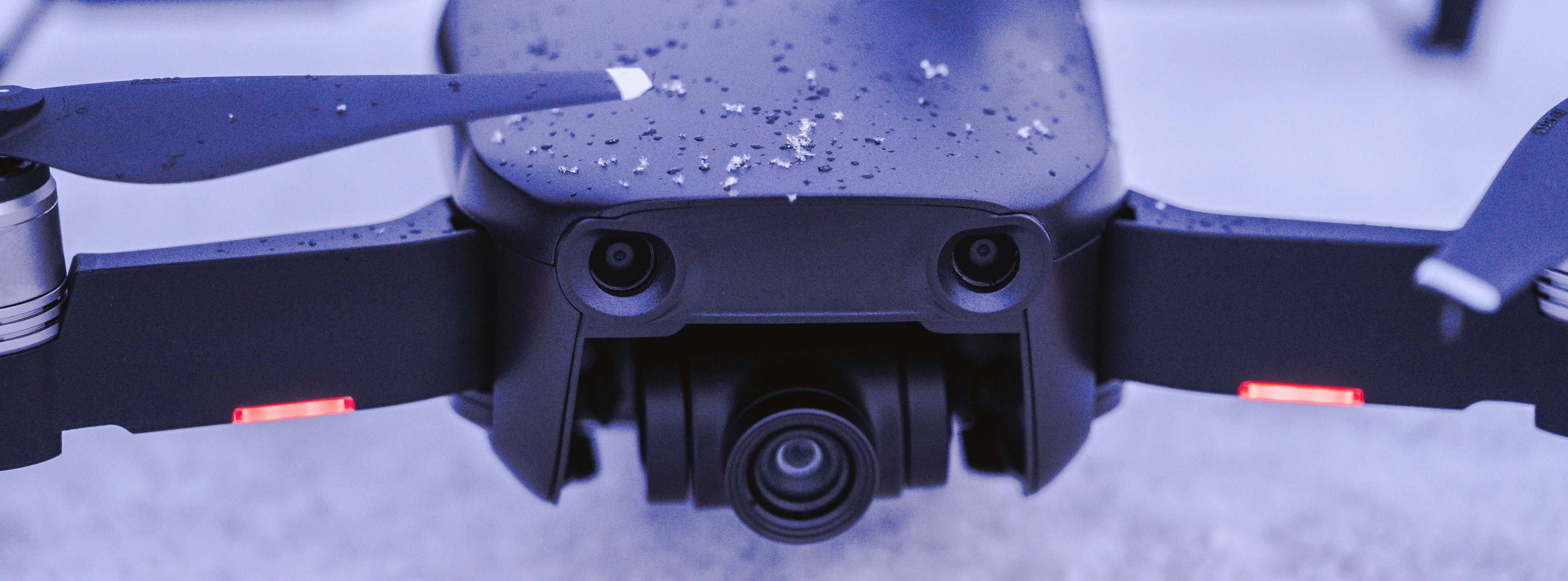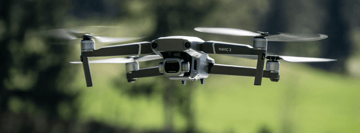As is tradition, the annual Consumer Electronics Show in Las Vegas this year was an endless carousel of product demos, prototypes and exciting releases. We’ve rounded up the major drone-related news in case you missed any of the announcements.
The DJI spin-off with big Lidar ambitions
DJI had its usual presence at CES, but among the event’s most interesting announcements was from one of the manufacturer’s spin-offs, lidar specialists Livox.
Livox is a success story from DJI’s Open Innovation Initiative, in which the drone manufacturer works closely with startups to solve industry challenges and develop new technology.
Livox unveiled two new sensors and a new method of lidar scanning, with the aim of making the technology more affordable to use in applications like autonomous driving, mapping, and smaller autonomous systems - from flying drones to ground robots.
Autel Robotics
Another hardware announcement came from Autel Robotics. The drone manufacturer’s Evo II Series promises to be an exciting addition to the drone market in 2020 for a number of reasons.
To start with, it really is a series. Autel announced three Evo II drones: a standard, Pro and Dual model. The major headline is that the standard model will be the first foldable consumer drone to shoot video in 8k.
The Evo II Pro has a slightly lower video resolution (a meagre 6k) but a larger 1″ CMOS sensor and adjustable aperture. The Evo II Dual has a side by side optical and thermal sensor for enterprise applications.
All three drones are built on exactly the same platform; the only difference is the payload. This payload is interchangeable, so pilots can use one drone instead of three.
The new Evo II range also comes with some impressive specifications: a flight time between 35 and 40 minutes, a range of over 5 miles, and 12 computer vision sensors that enable omnidirectional obstacle avoidance and autonomous flight.
The official pricing is yet to be announced, but long story short: this is one to watch for 2020.
Autonomous Home Security
Drones have long been touted as a solution to round-the-clock surveillance challenges. They can operate with a degree of autonomy, stream and record video, and stay operational 24/7 with docking stations. Security applications are inevitable.
The hurdles at the moment are mainly regulatory in nature: pilotless flights are off-limits without a waiver in most countries.
But that hasn’t stopped Sunflower Labs, a San Francisco startup that brought a futuristic home surveillance system to CES 2020.
The highlight of the system is the Bee, an autonomous surveillance drone that works in tandem with ground sensors dotted around your yard - called Sunflowers - to respond to any unexpected activity. It can stream live video and is generally designed to deter intruders.
The Bee drone deploys from its base station - the Hive - where it automatically recharges between flights.
Developments in the aerial taxi space
A constant at CES in the past few years has been vehicle and drone manufacturers unveiling concepts (and in some cases, working prototypes) of urban aerial mobility (UAM) solutions.
This year, helicopter manufacturer Bell launched a small, fully-electric model personal transport drone called the Nexus 4EX, alongside proposals for a smart city ecosystem to manage air taxi operations.
South Korean car manufacturer Hyundai also got in on the act, unveiling designs for an aircraft and an infrastructure system for UAM operations.
Hyundai’s S-A1 drone was developed in partnership with Uber Elevate, which also has an agreement in place with Bell.
Bell and Hyundai claim their transport drones will have top speeds of 180mph and a range of 60 miles between charges - more than enough for flights across a city to ease congestion on the ground.
That’s it for your CES 2020 drone roundup. If you’re only just getting back into things after a little time off over Christmas and New Year, check out our update on the FAA’s proposed Remote ID legislation.




.png?width=360&name=Banner%20Templates%20(6).png)
